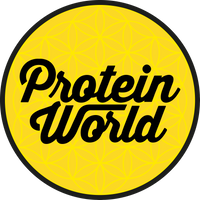
HOW TO BUILD MUSCLE
When trying to gain lean muscle believe it or not there is much more than just lifting weights involved. It is in fact the fine synergy of numerous aspects that when combined provide the perfect environment to developing and maintaining muscle. These key principles include sex, genetics, training specificity, nutrition and the all-important rest and recovery period. Let me elaborate…
Sex and Genetics
Men have higher levels of the hormone testosterone in their blood stream and this can be a primary driver behind building muscle. Whereas women tend to have higher levels of oestrogen which correlates with higher levels of subcutaneous fat. Despite these differences both men AND women can put on significant amounts of muscle when exposed to optimal conditions required to do so. The amount of muscle gained and rate in which it is done so however can differ.
As you get older, sarcopenia (age related loss of skeletal muscle) can result in an increase in overall fat mass in the body. This loss can be due to a decline in hormones such as growth hormone (GH). GH stimulates the release of the anabolic hormone IGF-1 to be released by the liver which plays a key role in muscle growth. Sarcopenia is associated with an increased risk in fractures and falls in older people so it’s important to be building muscle throughout your life time.
Some people simply have a genetic advantage over others with regard to aspects such a body shape and rate at which they can develop muscle and this should not be over looked. We must remember not everyone is made to be an Olympic lifter and in actual fact we should all try and play to our own individual strengths in order to excel so you do you!


Training Specificity The human body will specifically adapt to the demands imposed upon it. Most people assume that the only way to put stress on the body to build muscle is to lift heavier weights but this principle implies that there are numerous ways in which you can manipulate this including changing volume, frequency, form, time under tension, rest time and many more. So get creative!
Compound movements are key to building muscle. These are exercises that move over multiple joints (eg squats and deadlifts) meaning they recruit more muscles than isolated movements (eg bicep curl and tricep extension) so are extremely beneficial.
Nutrition
One of the most important factors in lean mass gain is creating a calorie surplus, i.e. consuming more calories than you use. For example, a 500 kcal surplus per day for a week will create 1 lb of weight gain. I would not recommend consuming more than a 10% calorie surplus, i.e. no more than 10% more than your weight maintenance calorie intake, as this could result in excess fat gain. Training can drastically deplete macro and micronutrients so it’s important to give your nutrition ample attention.
Protein
Protein is primarily used to build and repair muscle. For this reason, when looking to gain lean mass it’s important to work out just how much protein you need. We suggest consuming 1.4-3.3 g per Kg of body weight per day. For example, if you weigh 60 kg you should aim to consume between 84 and 198 grams of protein per day. In addition to muscle development this macronutrient helps to keep you fuller for longer and support your bones so it really is vital. Protein intake needs to be spaced out throughout the day to encourage protein synthesis and having a high protein meal or shake after your workout sessions will also help to prevent any lean muscle being broken down and used for energy.
Even the simplest tasks such as breathing requires energy, so when it comes to exercising our muscles rely on carbohydrates as their main fuel. However, muscles have limited carbohydrates stores (glycogen) and they need to be topped up regularly to keep your energy up. A low carbohydrate diet can lead to a lack of energy during exercise, early fatigue and delayed recovery and muscle development so try to avoid this!
Fats also provide the body with energy but are also responsible for many other bodily functions that aid with building muscle. Fat soluble vitamins such as Vitamins A, D, E and K require fat in order to be absorbed by the body and play key roles in maintaining optimal health, imperative when undergoing tough training sessions. Fat contains 9kcal/gram which can be very convenient when trying to eat a calories surplus.
Reset and Recovery
Many people don’t realise the importance of rest for recovery in order to maximise their results when it comes to muscle development. Aim to have at least 7-8 hours per night and make your REM (deep) sleep a priority. Muscles are not built in the gym (shocking I know!)…they are actually broken down. It is the period after your training that muscle is built so value this time as without you will be far more prone to injury or over training that will only set you back on your journey.
Building muscle is for both men and women, young and old, beginners and experts so don’t shy away from it as it can be hugely beneficial for the body. If you have any other questions please don’t hesitate to contact our in-house nutritionists at advice@proteinworld.com and they would be happy to help!
RECOMMENDED PRODUCTS

THE KEY BENEFITS OF PROTEIN INTAKE
When some people think of protein they often think it's only for those people in the gym lifting heavy weights trying to get huge muscles. This could not in fact be further from the truth! Protein is just as important for you as it is for anyone else in the world, lifting weights or not, and you're about to find out why.
The Benefits
The most commonly cited benefit of protein intake is support for the maintenance and growth of muscle mass. This often leads to the belief that high protein diets are only useful for those looking to gain weight, and it is true that protein is beneficial for these individuals. However, this can also be beneficial for those looking to lose weight. A high protein diet during weight loss, when combined with regular resistance exercise, will help retain lean mass. This should result in a more toned look after weight loss when compared to a low protein diet alongside minimal resistance exercise. Another less commonly mentioned benefit of a high protein diet is enhanced support of bone mass and health maintenance.
Protein is not only beneficial during weight loss for the purpose of maintaining muscle mass, it is also the most satiating macronutrient. By consuming meals and/ or snacks with a high protein content you are more likely to feel fuller for longer and keep away those naughty food cravings! A high protein intake is therefore able to aid the creation of a calorie deficit through reduced feelings of hunger, making it a useful took for weight loss.
Contrary to what you may have read about the toxicity and dangers of a high protein intake, it is not in fact dangerous, unless you have a pre-existing kidney condition. If this is the case then you should contact your GP before drastically altering your diet. In those individuals without such a condition, excess protein consumption is broken down and eventually simply excreted when you go to the toilet.
What Source?
Now that you know how much you should be consuming, you need to know which foods offer a good source of protein to help achieve your goals. The below list contains some suggestions, each one will have a different quantity of protein as well as a variety of other health impacts.
Poultry
Lean meat
Fish and seafood
Eggs
Nuts and seeds
Dairy products e.g. milk, cheese and yoghurt
Beans and legumes e.g. lentils and chickpeas
Soya based products e.g. tofu
Protein shake
The Slender Plan is the ultimate tool to support your weight loss goals with high protein meal replacement shakes, breakfast options, and snacks to help you retain lean mass and feel full whilst creating a calorie deficit.
Hopefully you now feel compelled to ensure your protein intake is sufficient and that you can use it as a tool to support your goals! If you have any further questions on this topic or any other nutrition questions, get in touch with our nutritionists at advice@proteinworld.com.
- OTHER STORIES -








